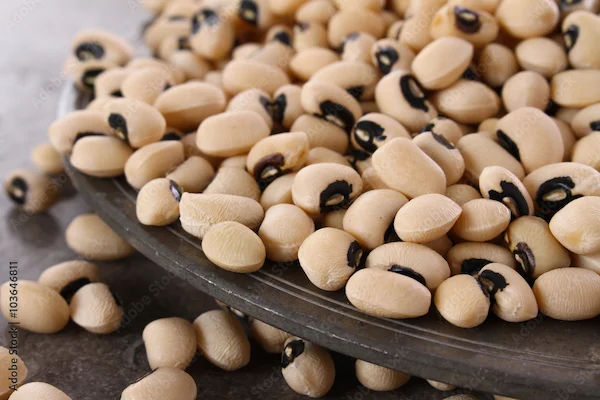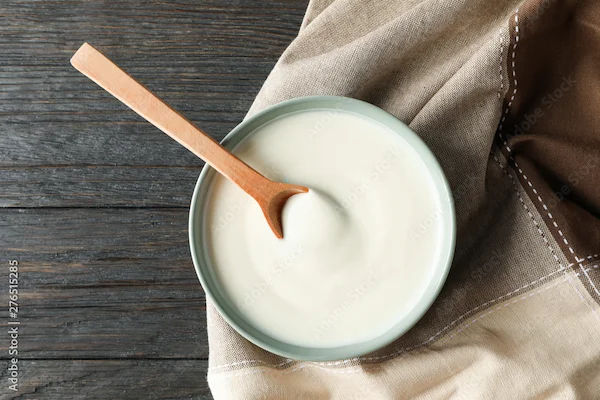Benefits Of Cowpeas
Explore the health benefits of cowpeas, a nutrient-packed legume that supports digestion, boosts heart health, aids in weight management, and provides a rich source of protein, fibre, and essential vitamins.

Written by
Last updated on 3rd Jul, 2025

Introduction
Cowpeas, also known as black-eyed peas or lobia, is a versatile and highly nutritious legume that offers numerous health benefits. Packed with essential nutrients, cowpeas can be a great addition to your diet, supporting overall health and well-being. Whether you're looking to improve digestion, boost energy, or maintain a healthy heart, cowpea has something to offer.
In this article, we’ll explore the many benefits of cowpea, how it can positively impact your health, and some simple ways to include it in your meals.
Nutritional Value of Cowpea
Cowpea is a powerhouse of nutrients, making it an excellent choice for a balanced diet. Here’s what a 100-gram serving of cooked cowpeas provides:
Calories: ~116 kcal
Protein: ~8 grams (great for vegetarians & vegans)
Fibre: ~6 grams (supports digestion)
Carbohydrates: ~21 grams (sustained energy)
Iron: ~2.5 mg (helps prevent anaemia)
Magnesium: ~53 mg (supports muscle & nerve function)
Potassium: ~278 mg (regulates blood pressure)
Folate (Vitamin B9): ~208 mcg (essential for cell growth)
With such a rich nutrient profile, cowpea can help meet daily dietary requirements while keeping meals delicious and filling.
Health Benefits of Cowpea
1. Supports Digestive Health
Cowpea is rich in dietary fibre, which promotes healthy digestion by preventing constipation and supporting gut health. The fibre content also helps maintain a healthy balance of gut bacteria, reducing bloating and digestive discomfort.
2. Boosts Energy Levels
The combination of complex carbohydrates and protein in cowpea provides a steady release of energy, making it an excellent food for active individuals. Unlike refined carbs that cause energy crashes, cowpea keeps you full and energised for longer.
Consult Top Nutritionists
3. Helps in Weight Management
High in protein and fibre, cowpea keeps you satiated, reducing unnecessary cravings and overeating. Including cowpea in meals can help with weight loss or maintenance by keeping hunger pangs at bay.
4. Supports Heart Health
Cowpea is low in fat and contains heart-friendly nutrients like potassium, magnesium, and fibre. These help regulate blood pressure, reduce bad cholesterol (LDL), and improve overall cardiovascular health.
5. Prevents Anaemia
Rich in iron and folate, cowpea helps in the production of red blood cells, preventing iron-deficiency anaemia. This is especially beneficial for pregnant women and individuals with low haemoglobin levels.
6. Strengthens Bones
Cowpea contains essential minerals like calcium, magnesium, and phosphorus, which contribute to bone strength and reduce the risk of osteoporosis.
7. Regulates Blood Sugar Levels
The high fibre and protein content in cowpea slows down sugar absorption, making it a good choice for people with diabetes or those at risk of developing it.
8. Enhances Immunity
Packed with antioxidants and vitamins like folate and zinc, cowpea helps strengthen the immune system, protecting the body from infections and illnesses.
How to Include Cowpea in Your Diet?
Cowpea is incredibly versatile and can be used in various dishes. Here are some easy ways to add it to your meals:
Curries & Stews: Cook cowpea with tomatoes, onions, and spices for a delicious curry.
Salads: Toss boiled cowpeas with veggies, lemon juice, and herbs for a protein-rich salad.
Soups: Add cowpeas to vegetable soups for extra texture and nutrition.
Snacks: Make cowpea chaat or sprout it for a healthy snack.
Rice Dishes: Mix cowpea with rice for a wholesome meal (like cowpea pulao).
Precautions & Considerations
While cowpea is highly beneficial, some people may experience:
Gas & Bloating: Due to its high fibre content, introduce cowpea gradually into your diet.
Allergies: Rare, but some individuals may be allergic to legumes.
Oxalates: People with kidney stones should consume cowpea in moderation as it contains oxalates.
If you have any digestive concerns or medical conditions, consult a doctor or nutritionist before making significant dietary changes.
Conclusion
Cowpea is a nutrient-dense, affordable, and delicious legume that offers multiple health benefits, from improving digestion to boosting immunity. Including it in your diet can enhance overall well-being while keeping meals flavorful and satisfying.
If you’d like personalised dietary advice or have specific health concerns, consider booking a consultation with a nutritionist on Apollo 24|7. Stay healthy, eat well, and enjoy the goodness of cowpea!
Consult Top Nutritionists
Consult Top Nutritionists
Ms. Lakshmi Tejasvi
Clinical Nutritionist
14 Years • M.Sc - Clinical Nutrition
Hyderabad
Vibgyor Nutri, Hyderabad
Dr Sumanth R
General Physician
2 Years • MBBS
Bengaluru
PRESTIGE SHANTHINIKETAN - SOCIETY CLINIC, Bengaluru

Dr. Ramalinga Reddy
General Physician
5 Years • MBBS MD General medicine
Bengaluru
PRESTIGE SHANTHINIKETAN - SOCIETY CLINIC, Bengaluru
Dt. Ila Sharma
Clinical Nutritionist
18 Years • Master in food & Nutrition
Gurugram
VIPUL GREENS - SOCIETY CLINIC, Gurugram
Mrs Sneha P V
Nutritionist
10 Years • Master of science in Food and Nutrition
Bengaluru
Apollo Clinic, Sarjapur Road, Bengaluru
Consult Top Nutritionists
Ms. Lakshmi Tejasvi
Clinical Nutritionist
14 Years • M.Sc - Clinical Nutrition
Hyderabad
Vibgyor Nutri, Hyderabad
Dr Sumanth R
General Physician
2 Years • MBBS
Bengaluru
PRESTIGE SHANTHINIKETAN - SOCIETY CLINIC, Bengaluru

Dr. Ramalinga Reddy
General Physician
5 Years • MBBS MD General medicine
Bengaluru
PRESTIGE SHANTHINIKETAN - SOCIETY CLINIC, Bengaluru
Dt. Ila Sharma
Clinical Nutritionist
18 Years • Master in food & Nutrition
Gurugram
VIPUL GREENS - SOCIETY CLINIC, Gurugram
Mrs Sneha P V
Nutritionist
10 Years • Master of science in Food and Nutrition
Bengaluru
Apollo Clinic, Sarjapur Road, Bengaluru

.webp)


